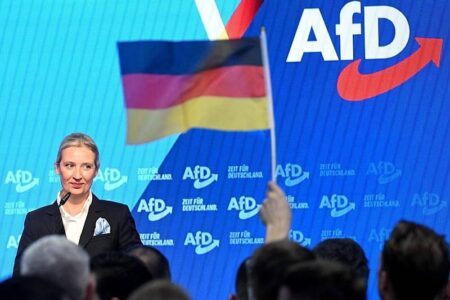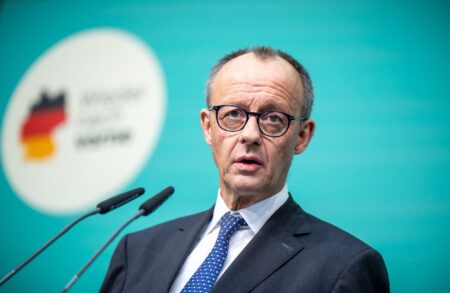The Alternative for Germany (AfD) has surged to prominence, becoming the country’s most popular party amid rising concerns over immigration and economic instability. Analysts attribute this momentum to a growing discontent with traditional political parties and their handling of pressing issues.
Browsing: EURACTIV
Following the recent coalition agreement, CDU leader Friedrich Merz announced that Germany is “back on track” to address pressing issues. The coalition aims to enhance economic stability and bolster unity amid ongoing challenges in the European landscape.
France has identified digital services as a key target in the EU’s tariff response to U.S. trade policies. This move reflects rising tensions over tax structures and digital market regulations, signaling a strategic shift in Europe’s trade negotiations.
German manufacturers are ramping up production in anticipation of new tariffs from the Trump administration. This proactive measure is viewed as a ‚Äúpleasant surprise‚ÄĚ in the industry, reflecting resilience amid global trade tensions.
France’s defense industry is shifting towards a war footing, driven by escalating security concerns in Europe. The government aims to enhance military capabilities, ramping up production and investment to ensure readiness amid rising geopolitical tensions.
The Paragon scandal reveals that Denmark and Cyprus are potential customers for surveillance technology alongside Italy. This development raises concerns over the ethical implications of spyware use and its impact on privacy rights across Europe.
In a surprising turn of events, former President Donald Trump has announced a proposed plan to “liberate” Germany from what he describes as bureaucratic constraints imposed by the EU. This controversial stance has ignited debates over sovereignty and transatlantic relations.







